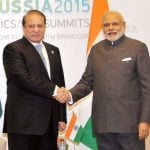The European Union’s executive has proposed clear separation of research and trading costs to inject more transparency into the fees that asset managers charge customers.
The European Commission published long-awaited draft rules on Thursday to flesh out a key section of the bloc’s reform of securities markets, known as MiFID II.
It has decided largely to back advice from the bloc’s European Securities and Markets Authority for full “unbundling” of research and trading fees, while adding some flexibility in how money is collected and managed.
Historically, research was seen as “free” and bundled with the trading fees charged to an asset manager, who then passed them on to customers. Such commissions are worth about 3 billion pounds a year in Britain alone.
Regulators want customers to know what they are paying for. Under the draft rules, asset managers must either buy research with their own money, or through a separate research payment account that is funded in advance and not linked to the volume of trades executed.
“Investment firms providing both execution and research services should price and supply them separately,” the draft rules say.
An official from Europe’s asset management sector said such “hard” unbundling would be good for customers by giving transparency on what is being paid for and how much.
But it was unclear whether the rules allow existing commission sharing agreements or CSAs to continue in countries like Britain, Germany and France.
Under a CSA, the broker who is executing a trade agrees that part of the commission is handed to third-party research firms nominated by the fund manager.
Vicky Sanders, co-founder of RSRCHXchange, a marketplace for institutional research, said the rules seem to leave room for a modified CSA to fund a research payment account.
“The industry will welcome with open arms the research unbundling rules,” Sanders said.
The funds sector official, who declined to be named, said if CSAs were not permitted, it would put Europe at a significant disadvantage in the global market.
The European Parliament and EU member states will have an opportunity to scrutinise the draft rules.
Separately on Thursday, the EU began the legal process of delaying the start date for MiFID II by a year to January 2018 to give regulators and the industry more time to prepare.
The European Parliament’s economic affairs committee backed the change, which will also require the approval of member states.
[Source:- Reauters]




